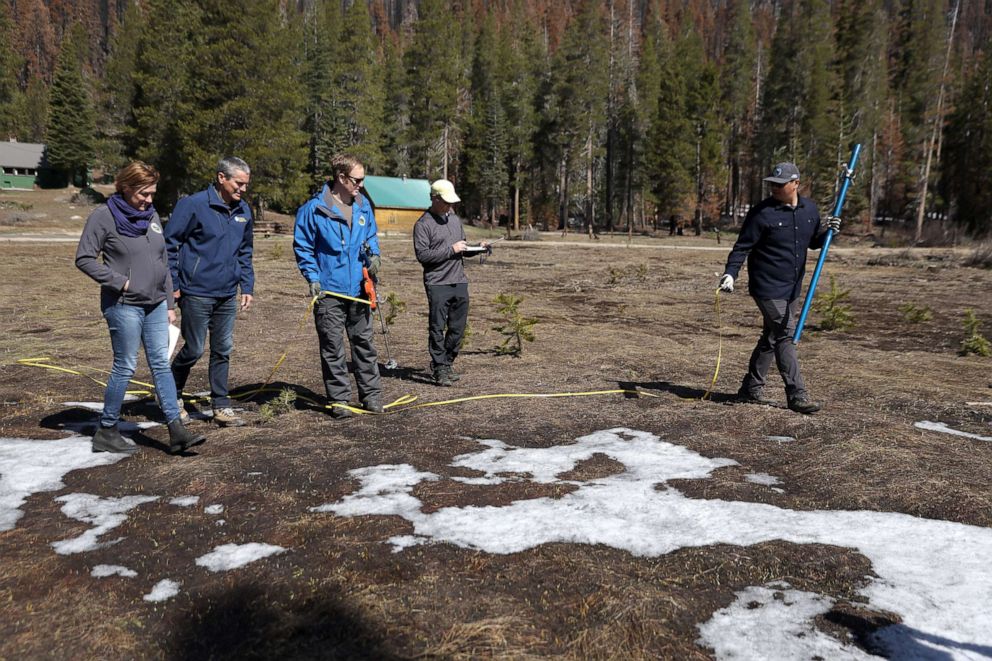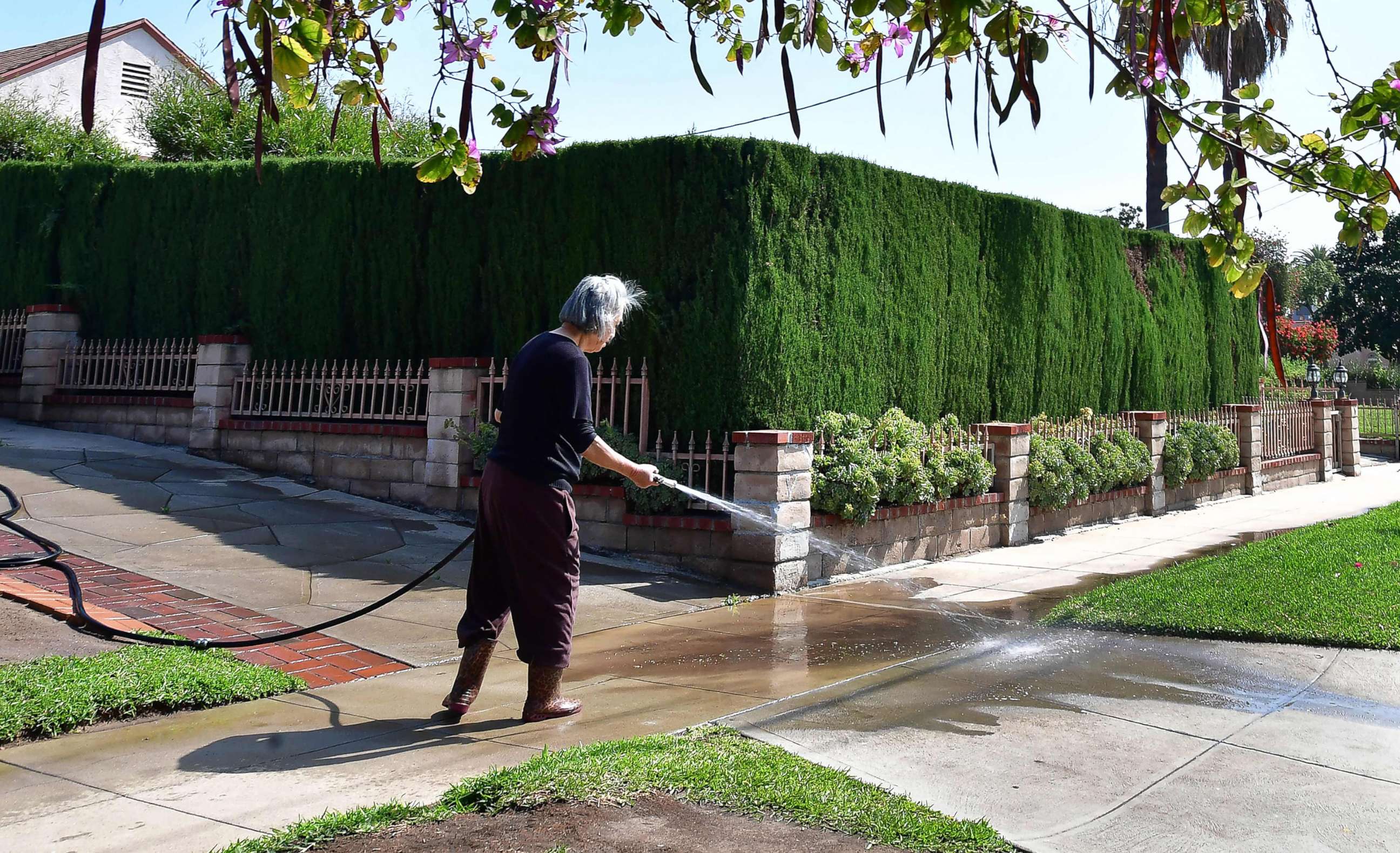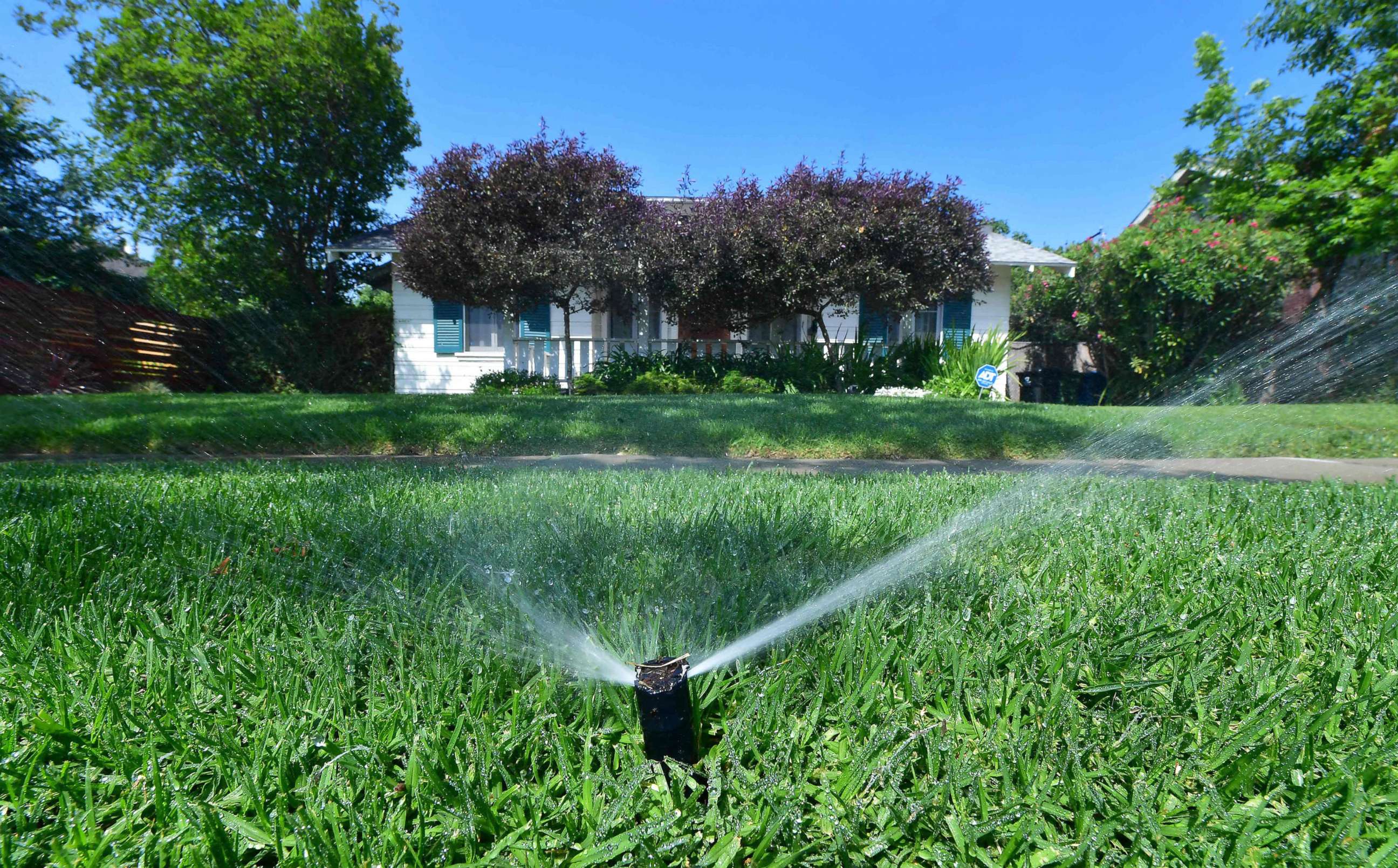'Unprecedented' water restrictions ordered for millions in Southern California
A decadeslong megadrought is causing record-low water levels in reservoirs.
Unprecedented restrictions have been ordered for millions of residents in Southern California as the megadrought in the region persists and continues to intensify.
About 6 million customers in Los Angeles, San Bernardino and Ventura counties under the Metropolitan Water District will be required to dramatically cut down outdoor water use. However, they are still encouraged to hand water their trees, Metropolitan Executive Officer Deven Upadhyay said during a news conference Wednesday.
The water district is requiring its member agencies in the State Water Project-dependent areas to restrict outdoor watering to just one day a week, or the equivalent.
The goal is to reduce overall water consumption by 35% in the face of the water shortage, Upadhyay said. If the restrictions do not get consumption down by 35%, even stricter rules could follow next year, he added.

The water district will be monitoring the daily water use and how much is being used, as well as how residents and businesses are responding to these emergency restrictions, Upadhyay said.

After Sept. 1, the water company may need to put more limits on how much water people can use, including banning all outdoor water usage, said Metropolitan General Manager Adel Hagekhalil, adding that the company is aware it will "create a challenge for people."
"Conservation should be a way of life for all of us," he said, describing the new restrictions as unprecedented. "This is a wake-up call for everyone."
The Metropolitan Water District uses water from the Colorado River as well as the State Water Project, which gets its water from the Sacramento-San Joaquin River Delta.

The Colorado is now at the top of the country's most endangered rivers list due to the megadrought.
Anyone who does not follow the water district's new requirements will be fined $2,000 per acre foot and other penalties for water the facility will need to provide, Upadhyay said.
ABC News' Matthew Fuhrman and Flor Tolentino contributed to this report.



